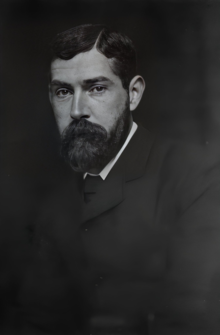Our website is made possible by displaying online advertisements to our visitors.
Please consider supporting us by disabling your ad blocker.
British idealism
This article includes a list of general references, but it lacks sufficient corresponding inline citations. (September 2010) |

A subset of absolute idealism, British idealism was a philosophical movement that was influential in Britain from the mid-nineteenth century to the early twentieth century. The leading figures in the movement were T. H. Green (1836–1882), F. H. Bradley (1846–1924), and Bernard Bosanquet (1848–1923). They were succeeded by the second generation of J. H. Muirhead (1855–1940), J. M. E. McTaggart (1866–1925), H. H. Joachim (1868–1938), A. E. Taylor (1869–1945), and R. G. Collingwood (1889–1943). The last major figure in the tradition was G. R. G. Mure (1893–1979). Doctrines of early British idealism so provoked the young Cambridge philosophers G. E. Moore and Bertrand Russell that they began a new philosophical tradition, analytic philosophy.[1]
- ^ Griffin, Nicholas (2013). "Russell and Moore's Revolt against British Idealism", in The Oxford handbook of the history of analytic philosophy, edited by Michael Beaney. Oxford: Oxford University Press. pp. 383–406. ISBN 9780199238842.
Previous Page Next Page


